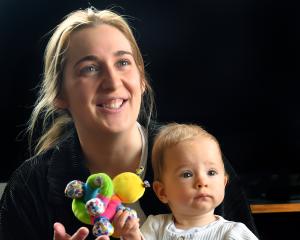High-needs patients with multiple social disadvantages need better access to primary health care, a study shows.
The extent of high health needs among these patients also raised "important issues'' over health equity in our health system, the University of Otago found.
The study acknowledged that cost was "a major barrier to equitable access to primary healthcare for high-needs and vulnerable populations'', study author Prof Tim Stokes said.
The time was "surely right'' for a review of the present system of "direct patient charges'' in general practice and their impact on access to primary care for vulnerable groups.
"Ideally, you want a system where you don't have homeless people, where you don't have people who have very high needs through no fault of their own,'' he said.
But the reality was that these needs had to be met, Prof Stokes added in an interview.
New Zealand's primary healthcare services also needed to be reoriented around multimorbidity (having more than one health condition), and further "integration of health and social services'' was needed.
Prof Stokes, who is the Elaine Gurr professor of general practice, research fellow Lauralie Richard and medical student Sharmaine Sreedhar undertook the study of 375 patients using Dunedin's Servants Health Centre.
This "important clinic'' provided free primary healthcare to high-needs patients.
In the study, published today in the New Zealand Medical Journal, researchers found that 75% of the patients had more than one health condition, and half had long-term physical and mental health comorbidities.
The most prevalent long-term conditions included: depression, asthma, hypertension, severe mental illness, hepatitis C and deliberate self-harm.
The mean age of these patients was 41.9 years, but the level of multimorbidity was comparable to those aged 65 and over in a general population of people attending a primary healthcare service.
This was the first study to report on the prevalence of multimorbidity and its relationship with multiple social disadvantage in a group of New Zealand high-needs primary healthcare patients, he said.












